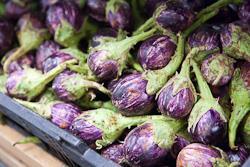
India’s government has postponed a decision on the introduction of genetically modified brinjal (eggplant) to perform further safety tests and allay concern about the introduction of the product, which has attracted widespread protests throughout the country.
India’s environment minister Jairam Ramesh announced the six-month moratorium on the Bt brinjal variety’s launch yesterday, after a consultation roadshow with farmers, scientists and environmental activists across India, reported Bloomberg.
“There is no overriding food security argument for Bt brinjal,” said Mr Ramesh. “Our objective is to restore public confidence and trust in Bt brinjal.”
Mr Ramesh said safety studies would be carried out “to the satisfaction of the scientific community”.
“This would be the first GM vegetable crop anywhere in the world so I have been very sensitive and I have arrived at this decision which is responsible to science and responsible to society,” Mr Ramesh told local media.
The Bt brinjal variety was developed by Indian biotech firm Maharashtra Hybrid Seed Company Ltd (Mahyco), and includes a gene known as cry1Ac from the soil bacterium Bacillus thuringiensis (Bt).
The gene makes the brinjal variety resistant to common borer pests, and was provided to Mahyco by US biotech giant Monsanto, which holds a 26 per cent share in the Indian company.
Brinjal is an Indian staple, which it exports to the UK, France, Germany, Hong Kong and Canada, according to the country’s National Horticulture Board.
Bt Brinjal’s release has roused widespread protests from environmental groups in India, as well as being faced with opposition from state governments responsible for the majority of India’s brinjal production area.
The vegetable has been seen by activists as an attempt by Monsanto to chain Indian producers to proprietary seeds and a risk to the country’s existing 2,000 brinjal varieties, reported the Associated Press. The moratorium has been labelled a victory against “American imperialism”.
But some proponents have welcomed Bt brinjal’s potential introduction, pointing to the success of Bt cotton varieties introducted to India in 2002.
Bt cotton has been widely credited with doubling India’s cotton production between 2002 and 2008, and turning the country from a net importer to the world’s second largest exporter, the Bloomberg report said.
The genetically modified variety is also being viewed as the spearhead for what could be the second ‘green revolution’ in India, an issue weighing on the minds of the country’s government in the face of climate change and a population growing by 18m a year.
GM food is seen by some as a solution to the need to produce more food per hectare as populations grow in India and globally.
Mahyco has claimed its Bt brinjal is perfectly safe for human consumption, and said the evidence will eventually shine through.
“Mahyco is confident that sound science based on evidence obtained over nine years of rigorous testing will prevail,” the company said in a statement.
Bacillus thuringiensis is already used as an insecticide, marketed under the names Dipel and Thuricide, and occurs naturally in some insect and plant varieties.
Human testing has shown the bacterium has few, if any, adverse affects on non-target species such as humans, according to the based Extension Toxicology Network, a cooperative project between several US universities.
Bt corn and cotton crops have been grown in the US for several decades.



